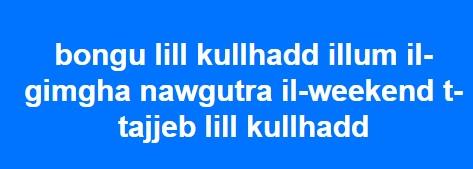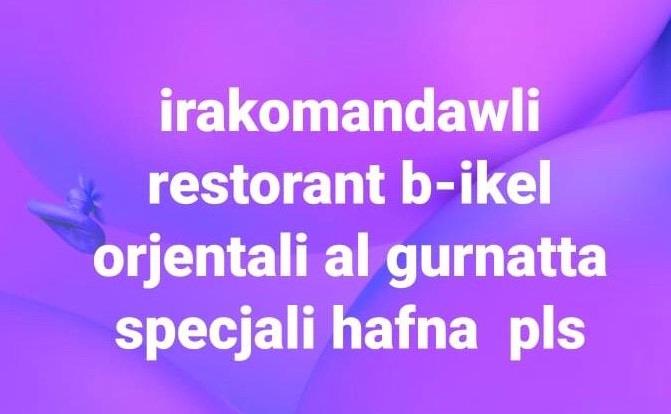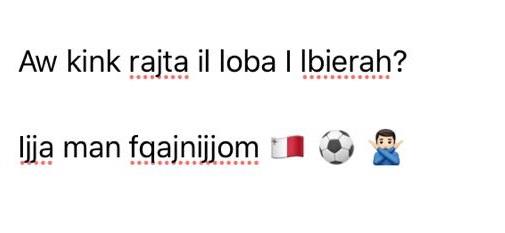It is no secret that the Maltese language as taught in school is not quite the same as the version used online, where the ‘għ’ has become an endangered species and where hyphens (artikli) have become a thing of the past. People are finding it more convenient to shorten and simplify the language, as long as what is written can be deciphered by its recipient. But is this efficiency coming at the cost of long-standing traditions?
The 2019 Report of the Maltese SEC examiners revealed that the Maltese SEC examination papers were riddled with mistakes, mostly relating to spelling and vocabulary: ones that are very much along the lines of the Maltese used online.
In fact, the examiners pointed out that most of the mistakes were caused due to the students’ overexposure to social media. “Candidates preparing for a Maltese exam at SEC level should focus on their studies and avoid the influence of social media; Facebook language is not adequate for this exam,” they said.
The Malta Independent on Sunday spoke to the Education Officer for Maltese in Secondary Schools, Carlston Grima, and the Director of the National Literacy Agency, David Muscat, for their input on these reports and the influence that social media is having on the use of the Maltese Language.

Social media does not influence a specific age
Grima said: Social media is affecting everything and everyone, not just the Maltese language. The reality of it all is that social media does not influence a specific age – the Maltese language is being affected in all aspects of society, including our schools.”
He added that, apart from the incorrect use of language found online, social media is not being used to discover and learn more about the Maltese language. Instead, we are experiencing a culture that is trying to “economise everything”, as it values efficiency over precision.
Muscat shared this sentiment by putting into perspective what social media really represents.
“Researchers call the language used on social media a ‘third mode’ i.e. a language mode that combines written and spoken language. Therefore, on social media people write in the way they speak and this may lead to lack of accuracy,” he explained.
As for a way forward, Grima and Muscat agree that students need to be taught how to distinguish speech from writing, as the latter has a number of grammatical and orthographic rules that should be followed.
“We have to keep in mind that social media influences a lot of people, even if what is shown is wrong, so much so that if we write incorrectly, someone might think it is the right way,” Grima pointed out.
It is only natural, therefore, to begin questioning the use of technology in schools. But does this not increase the chance of exposure to social media and therefore a distorted image of the national language?

Technology can help
Both Grima and Muscat agreed that the introduction of technology in schools would have quite the opposite effect, for a number of reasons.
“How can we convince children that Maltese is a living and dynamic language if it is not present in the digital world,” Muscat asked. “The Maltese language has to be present in the digital world for it to evolve. Young people also have to be given the opportunity to read and write Maltese on tablets, smart phones and other technological devices. There are many children and teenagers who feel more comfortable when they engage in digital reading and writing and they should be able to do so in Maltese as well,” he explained.
Likewise, Grima believes that technology will be a great help if it is used in an appropriate manner, such as through the use of correcting apps and programmes that are updated and maintained accordingly. “Investment in this sector would allow the Maltese language to keep up with the advances of other languages,” he said.
There is truth to this statement as the Maltese language is not as digitally prominent as other languages, especially when it comes to English. In fact, examiners reported that English or Italian words were used in exams when students did not know how to express themselves in Maltese.
Grima said that the reasons behind this include the use of English in the classroom due to the presence of foreign students, and the bombardment of social media, which facilitates the use of the English language rather than their national one.

Languages have to evolve
When asked if the new regulations, established in 2008, might have had an adverse effect on the value of the Maltese language, Grima said that this was not the case.
“Every language has to evolve and develop. If this doesn’t happen, the language loses its appeal and dies out. I believe that the new regulations are important because they gave a clearer idea of how to write in Maltese and they address uncertainties – such as the writing of English words in Maltese,” he explained.
Having said that, Grima said he would like to see the Maltese population take more of an initiative and attend seminars or courses that would rekindle their interest in their mother tongue.
He mentioned numerous organisations that hold such activities, such as L-Akkademja tal-Malti, l-Għaqda tal-Malti and also the National Literacy Agency.
David Muscat described the National Literacy Agency as one that promotes literacy to all age groups. “We donate hundreds of books to schools and give books to the most vulnerable families. Free reading for pleasure sessions for families are held weekly all year round, in public libraries and open spaces across Malta and Gozo. The Agency rewards students who love reading and writing, and provides support to struggling learners. We present reading, writing and literacy as enjoyable and part of the daily routine,” he explained.
Both Grima and Muscat believe that the Maltese language is still an important feature of national pride and if everyone plays their part, we can make sure that it will never meet its end.